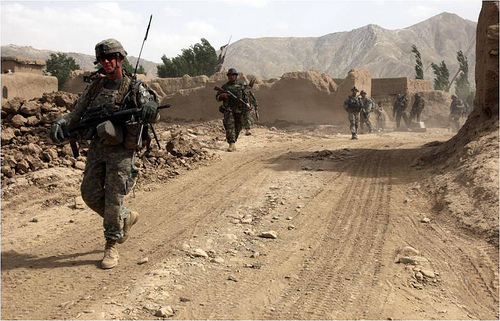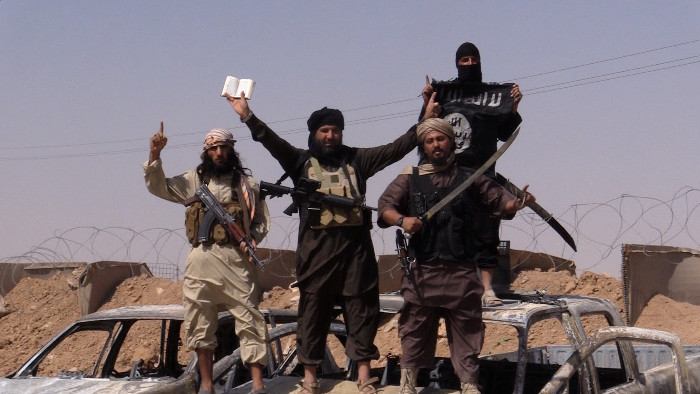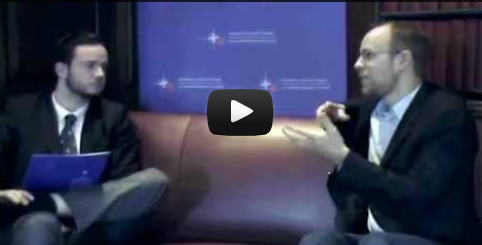It has been called one of the worst leaks in US military history — over 90,000 sensitive documents about the war in Afghanistan have been posted onto the whistle blowing website, WikiLeaks.
The reports leaked were written by soldiers and intelligence officers from the frontlines of the war in Afghanistan. The US Government is not denying the validity of the documents, but it is angry they have been released. Canadian Foreign Minister Lawrence Cannon has echoed that sentiment, stating that “our government is concerned…that operational leaks could endanger the lives of our men and women in Afghanistan”. Minister Cannon refused to comment on any of the information in the reports, but some of the reports do mention Canadian soldiers and government officials.
One report said a helicopter crash that killed seven soldiers, including one Canadian, was caused by a heat-seeking missile, and not small arms fire as was reported at the time. Julian Assange, creator of wikileaks.org, defends the release of these documents on the website that describes itself as a public service designed to protect whistle blowers. Assange has asserted that a further 15 000 documents were not released due to security concerns, in order to “make sure that this material does not put innocents at harm”. Assange has also accused US Forces of covering up civilian deaths, and that the “war crimes” must be investigated immediately. Washington has been quick to criticize the publication of the documents, and the Afghan Government has also relayed its shock over their release.
The published reports detail a close relationship between Taliban forces and the Inter-Services Intelligence (ISI) directorate, Pakistan’s intelligence agency, allege Iran is providing money, weapons and shelter to insurgents and describe accounts of brutality, extortion and corruption by members of the Afghan Police Force. Afghan Presidential Spokesman Waheed Omar stated that “most of this is not new…most of this is what we have always raised with our international partners”.
Most of the reports are considered raw intelligence, gathered by junior officers, which would then be passed on to be analysed further. All were written prior to the American mission changing course under the Obama administration, and before the US troop surge.
Scott Taylor, military analyst, editor of Esprit De Corps magazine and former Canadian soldier, describes the reaction from the US and Canadian Governments as a “smokescreen” in calling the release of the documents as a direct threat to Canadian and US Forces in Afghanistan. Taylor also said that much of the information released by the documents was already common knowledge, particularly the allegations about the relationship between the ISI and the Taliban. However, although the material does not reveal much that is new, the documents do provide enormous detail.
A focal point of the documents is the informal relationship between Pakistani Intelligence Chief Lt. Hamid Gul and the Taliban. The Times has reported that Lt. Gul’s name appears in many of the documents, who allegedly continues to liaise with Taliban leaders. This is important as it refutes the claims made by Pakistani Government that pro-Taliban officers were expelled from the ISI many years ago. Yet the leaked documents show that Pakistan still provides sanctuary and supplies to insurgents, casting doubt on the legitimacy of the Pakistani government’s intentions.
However, it does bring to light the issue of Pakistan’s proximity to the Taliban, as the group itself was created by the ISI in Pakistan’s madrassas (Muslim religious school) as a means of gaining influence in Afghanistan. A hostile Afghanistan would be detrimental to Pakistani interests, as it already faces threats from its eastern neighbour, India. Furthermore, the Pashtun ethnic group extends across the Afghan-Pakistan border. All this means that it would be within Pakistan’s interests to maintain close ties with the Taliban, who they expect to be a major part of the Afghan government once foreign troops leave. This has been particularly pertinent considering the withdrawal of troops is one of US President Barack Obama’s policy goals. By publicly pursuing their strategy of keeping close to the Taliban, however, the Pakistani government would only be jeopardizing one of their major levers against India: the US.
Another strategic claim made by the documents is that the Taliban are a “much more sophisticated fighting force” than originally perceived. The claim that the insurgents are using man-portable air defence systems (MANPAD) against US aircraft would indicate that similar technology is being used now as to that once used against the Soviets, and also raises the concern as to where they are obtaining the technologies.
One of the major concerns now is how the material will affect NATO’s image internationally. Taylor stated that many Afghans knew of the cases disclosed in the documents, not through the major news media outlets, but through word of mouth. Taylor says that the release of the documents is more of a smear campaign targeting NATO and the credibility of its operations in Afghanistan.
The release of the documents has already stimulated much public opinion over the nine-year war and the legitimacy of it all. There are already debates over the information regarding the ‘hit squads’ deployed to Afghanistan to eliminate Taliban leaders without any sort of due process or interrogation first. Recent cases such as that of Captain Robert Semrau, who is facing possible jail time and a dishonourable discharge from the Canadian Forces after shooting an unarmed, wounded insurgent, does highlight the growing public focus on the ethics behind the tactics of US and Canadian military.
This public outcry has become a powerful cause for withdrawal from Afghanistan sooner rather than later. However, a quick and disordered withdrawal would only facilitate Pakistan’s strategy of overtly supporting the US while covertly helping the Taliban so as to best position itself for any outcome, whether it be favourable to the US or to the Taliban.
As to who is responsible for this blatant breach of protocol is still unknown, but the WikiLeaks case does show a critical failure in security. The US Army has already charged Bradley Manning, an army intelligence specialist, for leaking other documents to the WikiLeaks website, but he is not a suspect in the criminal investigation into this latest case.
By Tanah Sullivan
Further readings: Afghan document leaks a concern: Obama, Afghan document leak could endanger Canadian troops, says Minister, Kerry dismissesleak papers as largely meaningless, Calls grow for more transparency on Afghanistan after major leak, US army searching for Afghan WikiLeaks source, Hit list draws fire in wake in of leaked US documents, Government concerned that massive document leak could endanger Canadian soldiers
*Disclaimer: The opinions expressed in this article are solely of the author’s, and do not represent those of The NATO Council of Canada




